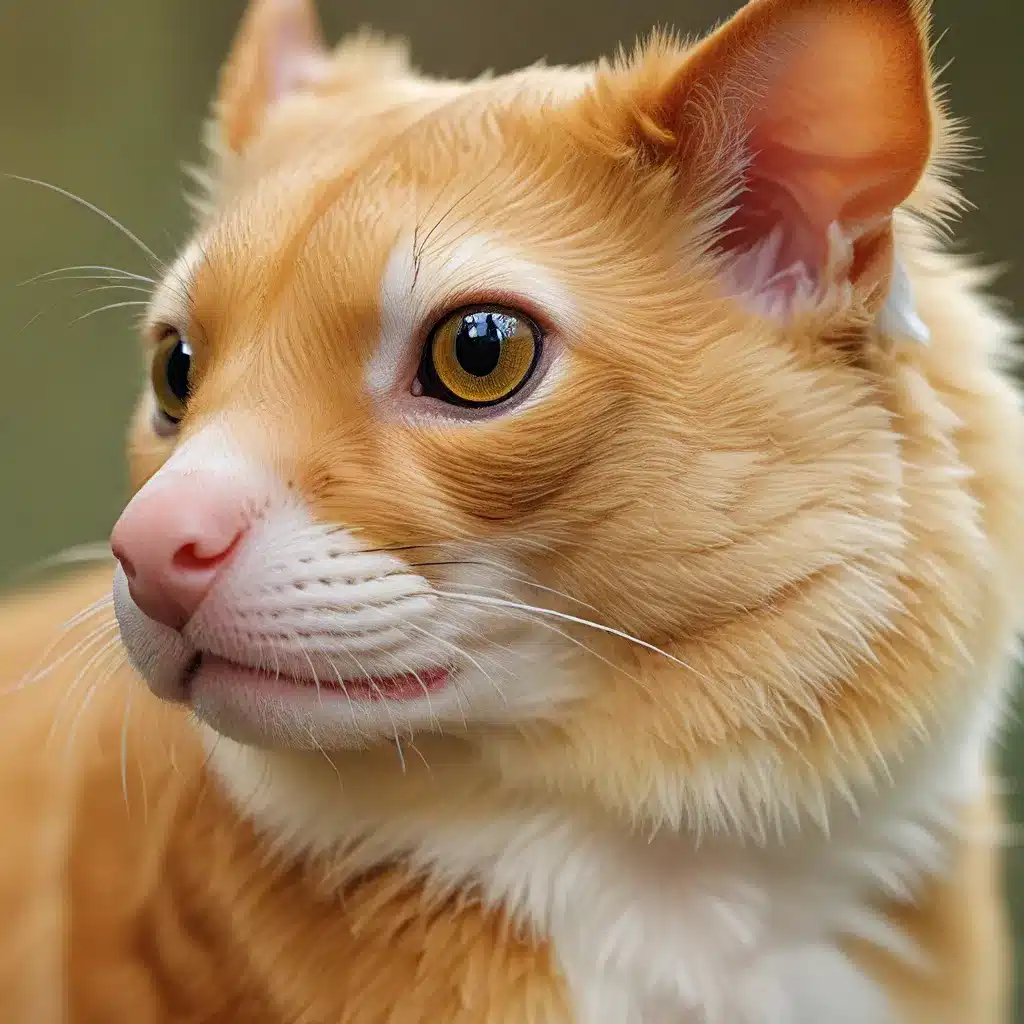
Furry, Feathered, and Finned Friends: Keeping Your Exotic Pet Happy and Healthy
As a proud exotic pet parent, I know the joy and excitement that comes with sharing your life with a unique, captivating companion. Whether you’ve welcomed a curious chinchilla, a mischievous ferret, or a vibrant-hued bird into your home, these extraordinary animals enrich our lives in countless ways. However, caring for an exotic pet requires a bit more diligence than your standard canine or feline friend. That’s why preventative care is the key to ensuring your furry, feathered, or finned companion lives a long, fulfilling life.
Establishing a Preventative Care Routine
Just like us, exotic pets need regular check-ups and proactive measures to stay in tip-top shape. The Companion Exotic Animal Medicine and Surgery Service at UC Davis emphasizes that “routine wellness exams and basic diagnostic testing are the foundations to identifying health concerns before illness occurs.” By making preventative care a priority, you can nip potential problems in the bud and give your pet the best chance at a healthy, happy life.
Wellness Exams: At least once a year, schedule a comprehensive wellness exam with an exotic-savvy veterinarian. During this visit, your vet will thoroughly assess your pet’s overall condition, check for any emerging issues, and ensure their diet and environment are on point. These regular check-ups are crucial for spotting concerns early, before they escalate into serious, costly problems.
Diagnostic Testing: In addition to the physical exam, your vet may recommend running basic lab tests to get a deeper look at your pet’s health. Blood work, fecal analyses, and other diagnostics can reveal underlying conditions you might not be able to detect on your own. Staying on top of these tests can provide valuable insights and peace of mind.
Specialized Care: Depending on your pet’s species and individual needs, your vet may recommend additional specialized services, like dental cleanings for small mammals or endoscopic procedures for birds. By investing in this level of proactive care, you’re setting your companion up for long-term wellbeing.
Mastering the Art of Exotic Pet Husbandry
While regular vet visits are essential, the foundation of your exotic pet’s health actually starts at home. Proper husbandry – or the care and management of your pet’s living environment – is a crucial piece of the preventative care puzzle.
Habitat Harmony: Each exotic species has unique habitat requirements, and meeting those needs is pivotal for your pet’s physical and psychological wellbeing. From the size and setup of their enclosure to the temperature, humidity, and lighting, every aspect of their environment must be carefully considered and maintained.
Dietary Delights: Nutrition is another key factor in exotic pet wellness. These companions often have very specialized dietary needs that differ dramatically from the kibble you’d feed a dog or cat. Consulting with your vet to develop a balanced, species-appropriate diet is essential for avoiding nutritional deficiencies or other health issues down the line.
Enrichment Essentials: Just like us, exotic pets need mental stimulation and the opportunity to engage in natural behaviors to thrive. Providing plenty of toys, hideaways, and other enrichment elements can prevent boredom, stress, and the development of undesirable habits.
Mastering the art of exotic pet husbandry may seem daunting at first, but the rewards are immeasurable. By creating a safe, comfortable, and enriching home environment, you’re laying the groundwork for a healthy, happy companion.
Safeguarding Against Illness and Injury
No matter how diligent we are, life has a way of throwing curveballs. That’s why it’s crucial to have a game plan in place for preventing and addressing potential health issues or injuries in your exotic pet.
Vaccination Vigilance: Many exotic species are susceptible to serious, sometimes fatal diseases. Working closely with your vet to develop a customized vaccination schedule can help protect your pet and give you peace of mind.
Parasite Prevention: Fleas, ticks, and other parasites can wreak havoc on an exotic pet’s well-being. Implementing a comprehensive prevention plan – including flea/tick control, deworming, and heartworm testing – is key to keeping these pests at bay.
Injury Awareness: From accidental falls to cage-related mishaps, exotic pets face unique injury risks. Staying vigilant about potential hazards in your home and taking steps to “pet-proof” your space can help minimize the chance of an accident.
Emergency Readiness: Sadly, even the most diligent exotic pet owners can’t always prevent the unexpected. That’s why it’s crucial to have an emergency plan in place, complete with the contact information for your vet’s after-hours service and the nearest exotic animal hospital. Being prepared for the worst can make all the difference when seconds count.
Embracing the Unexpected: Navigating Exotic Pet Wellness
Caring for an exotic companion may come with a few more twists and turns than your average dog or cat, but the joy and wonder they bring to our lives make it all worthwhile. By staying proactive with preventative care, mastering the art of exotic pet husbandry, and safeguarding against potential issues, you’re setting your furry, feathered, or finned friend up for a lifetime of vibrant health and happiness.
So, let’s raise a glass (or a carrot, or a millet spray) to our extraordinary exotic pets! With the right preventative care plan in place, the sky’s the limit for the adventures you and your captivating companion can share. After all, who needs a ordinary housecat when you can have a mischievous ferret or a mesmerizing macaw by your side?
If you’re ready to embark on the journey of exotic pet ownership, or if you’re looking to take your current companion’s wellness to the next level, I encourage you to explore the wealth of resources available at GoldenExoticPets.com. Here, you’ll find everything from expert care guides to product recommendations to help you create a thriving, healthy home for your one-of-a-kind pet. Happy adventuring!

